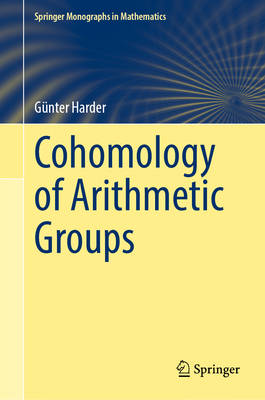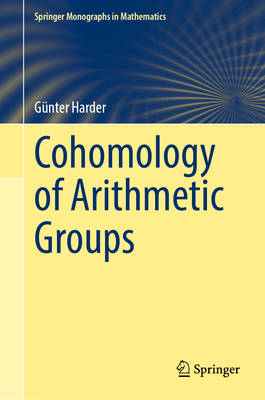
- Afhalen na 1 uur in een winkel met voorraad
- Gratis thuislevering in België vanaf € 30
- Ruim aanbod met 7 miljoen producten
- Afhalen na 1 uur in een winkel met voorraad
- Gratis thuislevering in België vanaf € 30
- Ruim aanbod met 7 miljoen producten
Zoeken
Omschrijving
The objects of concern in this book are the sheaf-cohomology groups of locally symmetric spaces attached to arithmetically defined groups Γ, contained in an algebraic group. The sheaves are associated to Γ-modules over the ring of integers or finite extension rings thereof. There is an action of a Hecke algebra on these cohomology groups. Accordingly, they decompose into indecomposable pieces which are of great interest in number theory and algebraic geometry. Upon extending the coefficient systems to complex vector spaces, an individual indecomposable component corresponds to a space of automorphic forms, thereby, giving rise to an attached L-function. For example, the Ramanujan Delta function provides the first case of such a correspondence. Up to division by a carefully chosen period, these L-functions take rational (algebraic) values at certain critical arguments. In various examples, it is discussed how the numerator and denominator ideals of these normalised values shed some light on the integral structure of the cohomology groups as a module under the Hecke algebra. In particular, results concern the denominator of cohomology classes which are represented by Eisenstein series, analytically constructed beforehand. In very special cases, values of the Riemann zeta-function play a decisive role. Within the discussion of these number-theoretic aspects of the cohomology groups, questions of a computational nature unfold. These may lead, by means of experiments, to a better understanding of the general integral structure of these groups. This introduction to the cohomology of arithmetic groups and the associated theory of automorphic forms and special values of L-functions focuses on number theoretic aspects and questions. It is intended for graduate students and researchers in the field of arithmetic as well as in automorphic forms and differential geometry.
Specificaties
Betrokkenen
- Auteur(s):
- Uitgeverij:
Inhoud
- Aantal bladzijden:
- 284
- Taal:
- Engels
- Reeks:
Eigenschappen
- Productcode (EAN):
- 9783032103772
- Verschijningsdatum:
- 3/01/2026
- Uitvoering:
- Hardcover
- Formaat:
- Genaaid
- Afmetingen:
- 155 mm x 235 mm

Alleen bij Standaard Boekhandel
+ 342 punten op je klantenkaart van Standaard Boekhandel
Beoordelingen
We publiceren alleen reviews die voldoen aan de voorwaarden voor reviews. Bekijk onze voorwaarden voor reviews.








